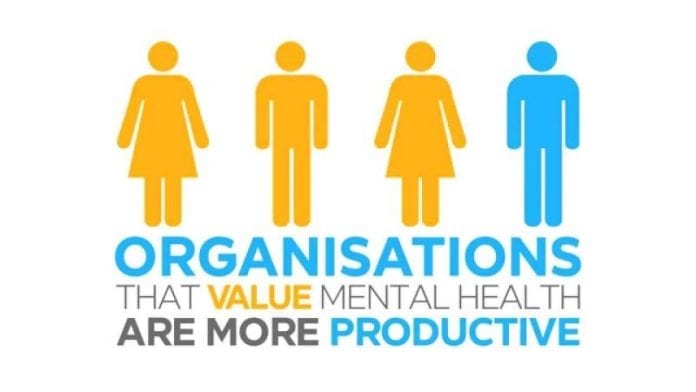You are not the only one! Most employees realize that working a full-time job is often an exhausting proposition, and if there is a mental health condition added to the mix, life can feel incredibly daunting indeed.
In the paragraphs that follow, we will talk about anxiety and depression in work environments, how to broach these subjects with co-workers and employers and how to deal with discrimination, should it rear its head.
New statistics from the Mental Health Foundation suggest that one in every six adults has experienced a mental health concern of one type or another. Upwards of 10 percent of individuals in England will have a bout of depression during their lives. Nearly 8 percent of all people are afflicted by a combination of depression and anxiety.

The unfortunate truth of the matter is that honestly addressing mental health problems, particularly in the workplace, can seem like something that just is not done. There is always a fear of being viewed as less competent, too fragile or even of being dismissed from the position altogether. If you are among those who are having difficulty staying focused on the job at hand, be upfront about the situation and allow those in a position to help the chance to do just that.
Understanding Your Legal Rights
According to the provisions of the 1996 Employment Rights Act, employers have a duty to work collaboratively to assist you in overcoming mental health challenges. Bear in mind that your employer has a vested interest to see you get better. Depression, anxiety and related mental health concerns are reportedly the reason for approximately one fifth of all work days lost to illness across the USA each year.
It is true that discussing something as sensitive and personal as mental health issues in the workplace is often difficult, but it may get easier if you focus on finding practical solutions to the problem. Consider negotiating for a part-time or flexible work schedule to alleviate the pressure. Telecommuting for part of the workweek may be another possibility that will improve your situation greatly. Arming yourself with tangible suggestions before meeting with an employer can make all the difference.
If speaking with your direct supervisor is too hard or if it does not prove fruitful, you may want to go up the chain and speak to a human resources officer or the occupational health director. In all scenarios, however, it is important to approach your direct manager first.

Demolishing The Mental Health Stigma
As more and more people feel comfortable discussing issues related to mental health, the negative stigma such subjects have had in the past will continue to shrink. While it is certainly true that work does matter, mental health and overall wellness are far more important. Everyone has a role to play in making every workplace a healthier, happier place to spend time. Most insurers will now even cover mental health issues, a big change and one led by blue cross blue shield of illinois hmo.
Helpful Mental Health Strategies
Research studies have revealed that engaging in mindfulness exercises, regular workouts, the acquisition of new skills and working to attain a proper balance between work and home life are all terrific ways to promote mental wellness.
Building strong relationships with co-workers and volunteering to help others can also do a great deal of good for one’s mood. Being in the presence of a unified, positive group of people is extremely beneficial when one member is experiencing an especially difficult time.









